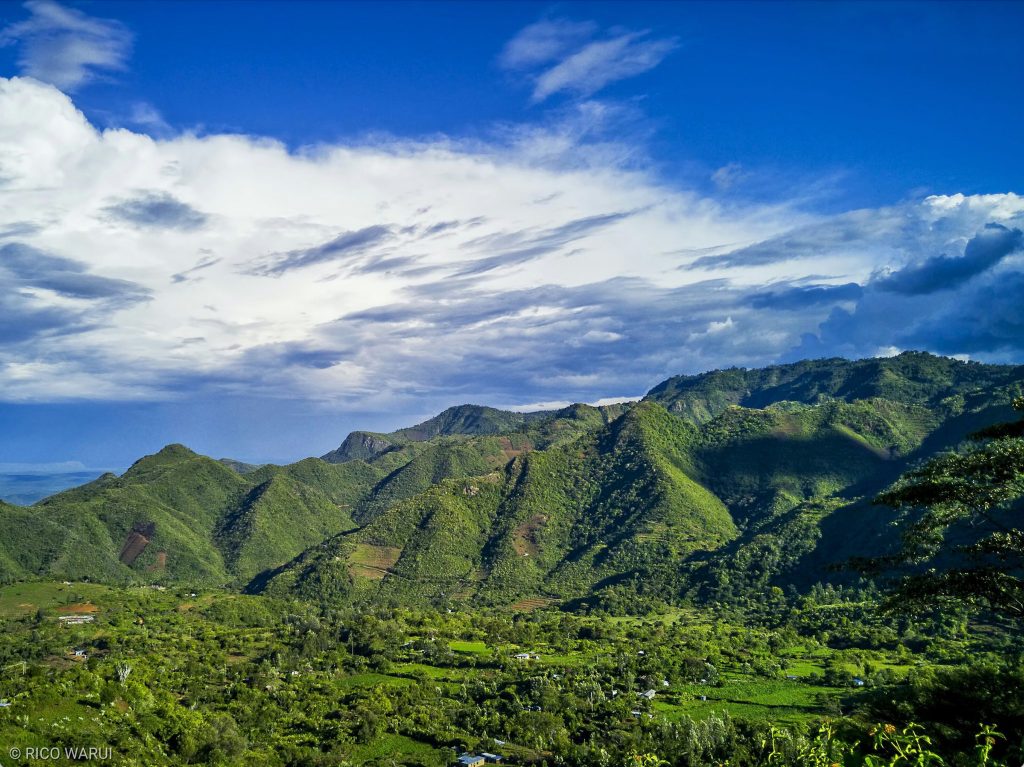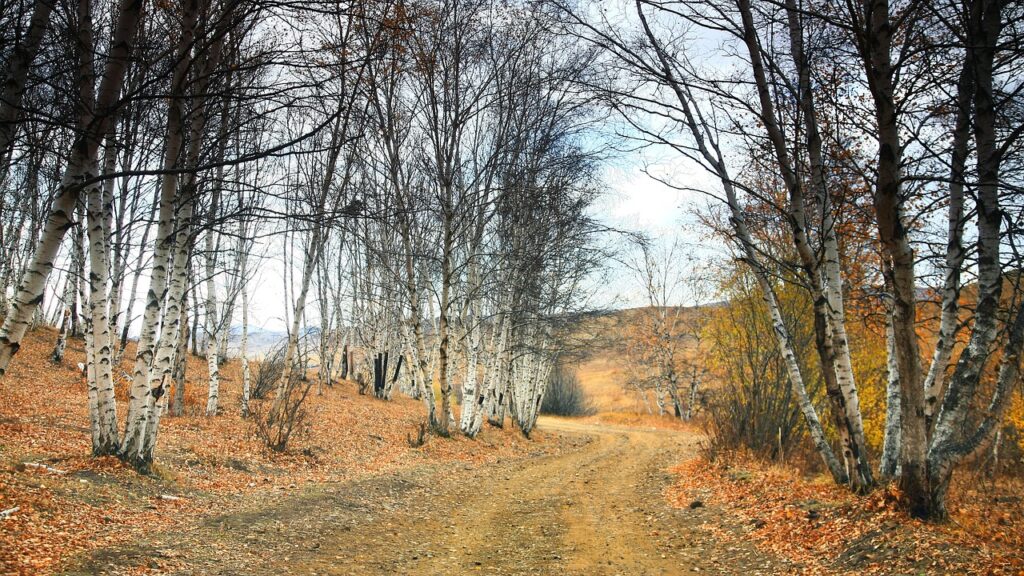Pathways to Sustainable Welfare critically examines how cities can address the dual challenges of climate change and sustainability while ensuring the welfare of their populations. Focused on three Swedish cities, it explores the integration of environmental and welfare concerns in local policies, urban movements and public opinions.
Next Coffee Talk with Dr. Léa Lacan: “Forest Politics in Kenya’s Tugen Hills: Conservation Beyond Natural Resources in the Katimok Forest” | 26. February 2025

26. February
2025, 6 am MST (North America) / 2 pm CET (Germany) / 3 pm EET (Finland)
Title: “Forest Politics in Kenya’s Tugen Hills: Conservation Beyond Natural Resources in the Katimok Forest”
Authors: Dr. Léa Lacan (Postdoctoral Researcher, University of Cologne, Germany)
Abstract:
Speaking from her recently published book of the same name, environmental anthropologist Léa Lacan will explore human-sylvan relations in the Katimok forest, Baringo highlands, Kenya, and aims to rethink the forest beyond questions of access and control of natural resources, as a habitat where forest politics and human lives are inextricably intertwined. Léa’s research shows, how – as with many forests in Africa – it has become constructed as a category and territory of nature under state control: an area both to be protected and turned into exploitable resources. For those living within and on the boundaries of the forest, this social-ecological transformation has had a significant impact. Despite now being settled outside Katimok itself, dispossessed by administrators heedless of local management practices, many former residents continue to maintain a close connection with the forest, not only to sustain their livelihoods, but also to maintain their intimate links with ancestral lands, where their stories and memories are materially inscribed and powerfully invoked.
To join the event, please use the Zoom Link: https://uni-jena-de.zoom-x.de/j/65854920539
Meeting-ID: 658 5492 0539; Kenncode: 008070
Coffee Talks Human-Forest-Relationships
Let’s sit, have a coffee and talk in the scientific café! The “Coffee Talks HFR” give room for open and relaxed discussions on current research subjects related to human and society relations to forests. It warmly welcomes all interested in forest-related research to join the online sessions.
Each session lasts 1,5 hours. It starts with a 20-30 minute presentation of a guest speaker. After the presentation, with coffee or tea at hand, participants have plenty of room for an open discussion and exchange.
The “Coffee Talks HFR” take place three to four times per term on Wednesdays at 6 am MST / 2pm CET / 3pm EET.
Guest speakers wanted!
If you are interested in contributing to the “Coffee Talks HFR”, please contact either jana.holz(at)uni-jena.de, jodie.asselin(at)uleth.ca or tuulikki.halla(at)uef.fi with info on your subject (title and short abstract) and a preferred date.
The interdisciplinary and international scientific “Coffee Talks HFR” have a long tradition. In 2021, a cooperation between the Finnish research project Human-Forest Relationships in Societal Change and the German research group Mentalities im Flux (flumen) launched and hosted the “Scientific Coffee Sessions HFR”. Since then, they hosted more than twelve sessions with speakers form interdisciplinary social science background and international participants. In 2024, the network broadened and the event got a new name: “Coffee Talks HFR”.
The “Coffee Talks HFR” are hosted by:
- Human-Forest Relationship Research Club of the Finnish Society of Forest Science
- The research group “Mentalities in Flux” (flumen) Research Project
- Forest Anthropology Working Group on Europe and Beyond (FORAGE) FORAGE – WUR
- Soz-Wald, a newly-established German speaking network of sociological research on forest relations. Info on the network’s first event: https://www.flumen.uni-jena.de/symposium-zur-soziologischen-waldforschung-am-01-dezember-2023-in-jena/; join our Email-list: https://www.listserv.dfn.de/sympa/info/soz-wald
Dr. John Björkman (University of Turku, Finland): “The Black Man of Villavuori sits in that forest, guarding the village border.” Sacred forest sites of folk belief in Southwest Finnish village landscapes | 22 January 2025

22. January 2025, 6 am MST (North America) / 2 pm CET (Germany) / 3 pm EET (Finland)
Title: „The Black Man of Villavuori sits in that forest, guarding the village border.“ Sacred forest sites of folk belief in Southwest Finnish village landscapes.
Authors: Dr. John Björkman (University of Turku, Finland)
Abstract:
In his doctoral thesis in Nordic Folkloristics, John Björkman studied natural places which were considered sacred, meaning magical, supernaturally dangerous or inhabited by supernatural beings in 19th century folk belief in Southwest Finland. Based on recorded historic folklore, Björkman was able to identify and localize 120 such places in the region of Southwest Finland and studied them as part of their contemporary village landscapes. Currently, he works in a research project exploring the transformation of the Finnish ritual forest relationship from prehistoric to modern times by combining the methods of archaeology, folklore, geoinformatics and art. The aim of the project is to increase understanding of the forest relationship and the importance of the experience of sacredness for the forest relationship.
To join the event, please use the Zoom Link: https://uni-jena-de.zoom-x.de/j/65854920539
Meeting-ID: 658 5492 0539; Kenncode: 008070
Coffee Talks Human-Forest-Relationships
Let’s sit, have a coffee and talk in the scientific café! The “Coffee Talks HFR” give room for open and relaxed discussions on current research subjects related to human and society relations to forests. It warmly welcomes all interested in forest-related research to join the online sessions.
Each session lasts 1,5 hours. It starts with a 20-30 minute presentation of a guest speaker. After the presentation, with coffee or tea at hand, participants have plenty of room for an open discussion and exchange.
The “Coffee Talks HFR” take place three to four times per term on Wednesdays at 6 am MST / 2pm CET / 3pm EET.
Guest speakers wanted!
If you are interested in contributing to the “Coffee Talks HFR”, please contact either jana.holz(at)uni-jena.de, jodie.asselin(at)uleth.ca or tuulikki.halla(at)uef.fi with info on your subject (title and short abstract) and a preferred date.
The interdisciplinary and international scientific “Coffee Talks HFR” have a long tradition. In 2021, a cooperation between the Finnish research project Human-Forest Relationships in Societal Change and the German research group Mentalities im Flux (flumen) launched and hosted the “Scientific Coffee Sessions HFR”. Since then, they hosted more than twelve sessions with speakers form interdisciplinary social science background and international participants. In 2024, the network broadened and the event got a new name: “Coffee Talks HFR”.
The “Coffee Talks HFR” are hosted by:
- Human-Forest Relationship Research Club of the Finnish Society of Forest Science
- The research group “Mentalities in Flux” (flumen) Research Project
- Forest Anthropology Working Group on Europe and Beyond (FORAGE) FORAGE – WUR
- Soz-Wald, a newly-established German speaking network of sociological research on forest relations. Info on the network’s first event: https://www.flumen.uni-jena.de/symposium-zur-soziologischen-waldforschung-am-01-dezember-2023-in-jena/; join our Email-list: https://www.listserv.dfn.de/sympa/info/soz-wald
New publication by Linda von Faber, Martin Fritz and Dennis Eversberg: “Mentalities in the energy and heat transition: A comparative study of German bioenergy villages.”
Together with Dr Martin Fritz and Dennis Eversberg, Linda von Faber has published the article “Mentalities in the energy and heat transition: A comparative study of German bioenergy villages.”
Abstract
Bioenergy villages (BED) cover a large part of their electricity and heat requirements with locally produced biomass. Particularly in the initial phase of their promotion around 20 years ago, there were hopes that a locally self-sufficient, decentralised and grassroots energy and heating transition could develop from this. The article analyses data from a Germany-wide representative survey and a postal survey of randomly selected BED residents across Germany in order to systematically 1) compare the social structure of BED with the cross-section of German villages and the overall German population for the first time, 2) determine the prevalence of types of socio-ecological mentalities in these three groups and 3) examine the attitudes of BED residents towards the transition process in their village and towards the energy and heating transition. The results show a combination of eco-social and conservative mentalities in BED, which offers potential for broadly supported local energy transition projects. However, more political support is needed for an expansion to other villages, as the conservative mentalities in rural areas are dominated by economic-calculative elements and the eco-social motivation is lower.
Article: Click here

